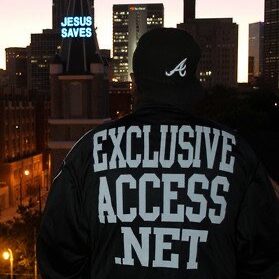When I watch movies about the experiences of people who are different from me, I’ve found they usually invite one of two approaches.
Some films take a sort of anthropological approach: the characters are depicted sympathetically, and viewers leave the theater with deeper insights into a set of life experiences dramatically different from their own. For me, Straight Outta Compton was such a film. Films like these can help erode prejudices, since they let us look at something besides the portraitures of prejudice.
But there other films go even farther. They allow us, and sometimes coax us, to not only learn about the “other” but identify with him or her. So they not only help chip away at prejudices, but they also lay a foundation for connection, friendship, acceptance, and love.
You can call these works of art whatever you want—incarnational, transcendent, humanistic—but they usually have a deeper impact. They can transport and transform us, rather than just enlighten or persuade us. These types of films might be different for different viewers. One of the first I encountered was Milos Foreman’s Ragtime, which made me weep for and with a wronged African-American in a way that (even as a white eighteen-year-old) I understood was different from how I was responding to Roots.
Ryan Coogler’s Creed is another. It’s not a tragedy, so the emotions it provoked were quite different from what I experienced in Ragtime. But provoke emotions, it certainly did. How? It reminded me that even when someone’s experiences are different from mine, there are no fears, joys, temptations, or blessings except those which are common to all people.
The title of the film refers to Apollo Creed, Rocky Balboa’s antagonist in the first two films that bore that character’s name. Adonis Creed (Michael B. Jordan), who goes by “Donnie,” is Apollo’s illegitimate son. His boxing skills were forged not in gyms but in juvenile detention brawls.
In an opening flashback scene, Creed’s widow (Phylicia Rashad) brings the child home to the luxurious estate the father he never knew paid for with his very life. As the film returns to the present, Donnie tries to convince himself he is content with a white collar job while sneaking off to Tijuana for low-money fisticuffs that are only a half-step up from Fight Club.
Eventually Donnie can no longer stifle the urge to follow in his father’s footsteps, so he heads to Philadelphia in hopes that Rocky (Sylvester Stallone) will agree to train him.
I’m always surprised when I revisit the original Rocky by how little of it is actually about the boxing. An hour into to the film, Rocky finally gets offered a shot at the title, and the film spends about as much time on Rocky’s and Adrian’s date as it does on the climactic title fight.
Creed mirrors, rather than continues, the original Rocky plot. An unlikable champion of a different race gives a long-shot a title shot as a publicity gimmick; an aging and reluctant trainer at first wants nothing to do with the bout; a sweet romance humanizes the warrior by allowing him to open up emotionally.
Kenneth R. Morefield




